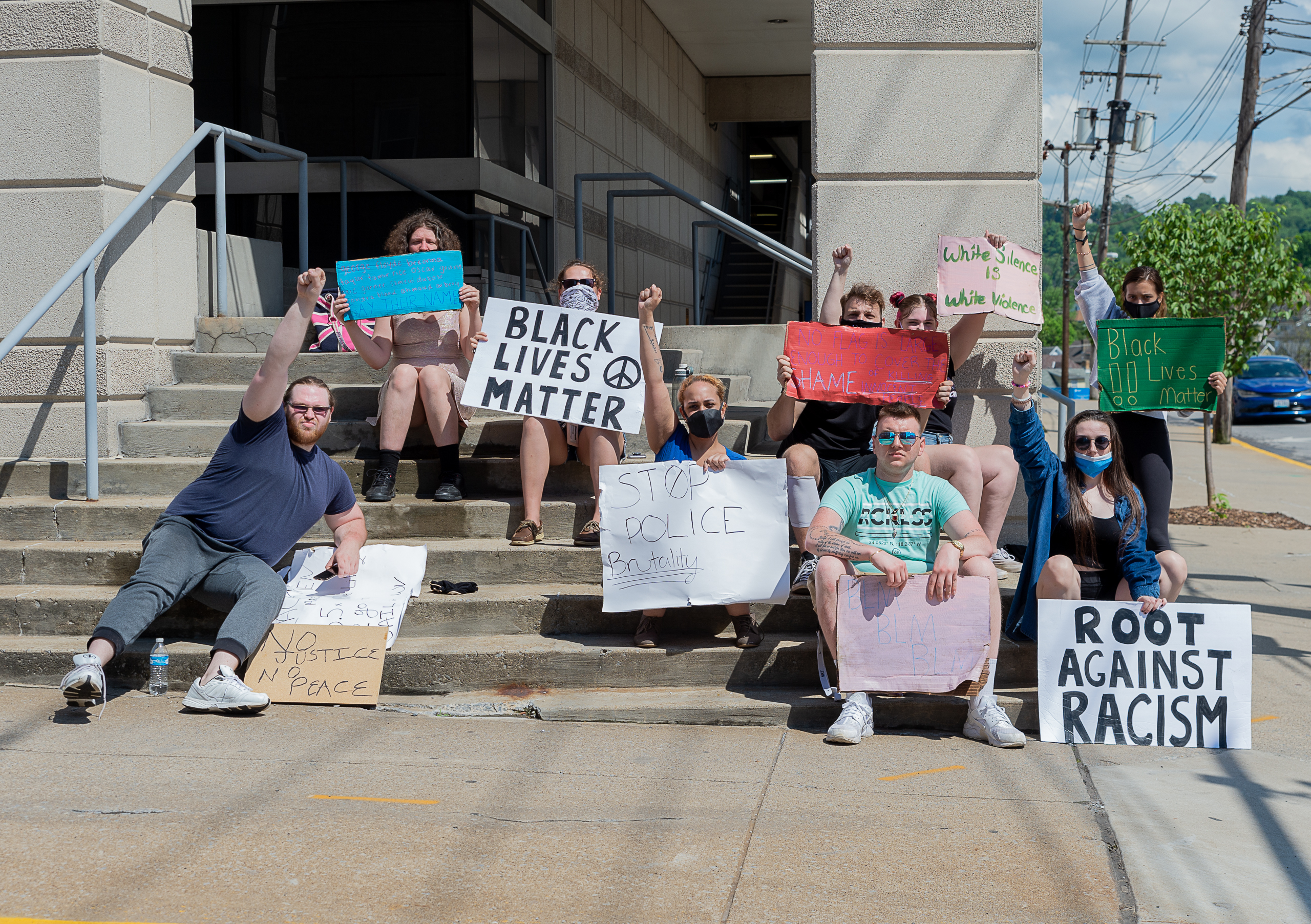MORGANTOWN — Sen. Joe Manchin presented a virtual forum on Friday on the issue of race and law enforcement. He was joined by three police officers, a pastor and an Army general who offered their thoughts and fielded some questions.
The forum was the third installment in Manchin’s From Hurt to Healing listening tour. It was recorded Aug. 21 and aired on his Facebook page on Friday.
“As a country we have made many painful mistakes that have marginalized our fellow human beings,” Manchin said. We have to step outside our own experiences and comfort zones to listen to others.
Before taking questions, the panelists provided some introductory comments.
Gen. Stanley McChrystal is a retired four-star general and former commander of U.S. and International Security Assistance Forces Afghanistan. In his early days, his Army base had two movie theaters, one for whites, one for blacks, he said. “Both were wearing the same uniform. Both were defending the same country.”
In conflicts such as those in the Mideast, he said, it’s typical to demonize the enemy. But if you sat down and listened to them you would see that if you had the same background and experiences you would likely reflect the same positions they do. “We may be no more right than they are.”

The Rev. Ronald English was mentored by and worked with Martin Luther King Jr. and pastor of the First Baptist Church in Charleston from 1972 to 1993. He spoke of a police Officer Hooks he knew in his childhood days who was embodiment of community policing before that was a concept. English knew him as a person in and out of uniform.
On the other end were officers who saw themselves as warriors. One state trooper pulled him over for no reason, told English he didn’t need a reason and arrested him for having no insurance card. He put English in his cruiser. “That was terrifying” because many black men were never seen again after getting into a cruiser.
Retired Charleston Chief of Police Dallas Staples, retired Charleston police officer Duke Jordan and current Charleston Chief of Police James “Tyke” Hunt also participated.
Manchin read prepared questions from residents identified only by their first names and hometowns.
One person asked the three police officers if they ever faced injustice in their jobs.
Staples said that the force in his early days had only eight African-American officers. They had to file suit to obtain a federal consent decree to be able to hire more. Discrimination in all institutions played into the culture of the department.
Jordan said he was one of the 15 black officers hired as a result of the suit and the accompanying investigation. It was hard because they had to earn the respect of the other officers and prove they weren’t just on the force because of the suit.
Staples said part of changing the culture will be empowering good officers to report on bad officers and not operate behind a code of silence.
Another question dealt with training and its role in overcoming discrimination.
Hunt said officers need to be trained to a community standard. There has to be earnest conversation, a give-and-take to make clear what the community expects, a conversation that doesn’t invoke fear.
Staples said officers need to look to the community as a customer. “If we can instill in police officers that they are public servants and the taxpayers are customers” they could adopt the mentality of retailers: “they always look at what the customer wants.”
Every neighborhood is different, he said. But 85% of calls are not law-enforcement related. So dispatchers need training too, so officers are placed in situations they’re not trained to handle.
Training should include an assessment, he said, that makes trainees aware of their own biases and the program could be adjusted to deal with those. The conversation would still be difficult but become a way of changing.”
Black Lives Matter came up.
Hunt said BLM brought some needed attention to law enforcement nationwide, about officers’ response to resistance and use of force and the need to respond the safest way for an arrestee and the officer.
Staples said, “Police were a lightning rod for a variety of injustices across the spectrum.” BLM was hijacked by other protesters who became violent.
But the realization that officers must treat African-Americans differently is evidence there was discrimination all along, he said. Part of that falls on prosecutors and judges who prosecute and sentence according to different standards and need to be train to be consistent.
He views the term defunding as the wrong term. Instead, communities should invest in underserve neighborhoods and overlooking systemic problems.
McChrystal said the BLM movement is necessary but necessary change will be messy. “I think its going to have to make us uncomfortable” until the change occurs, and that will take time.
Manchin noted he’s not received a single call favoring defunding. Instead, people wo call about police issues highlight the need for better training.”
Tweet David Beard @dbeardtdp Email dbeard@dominionpost.com




